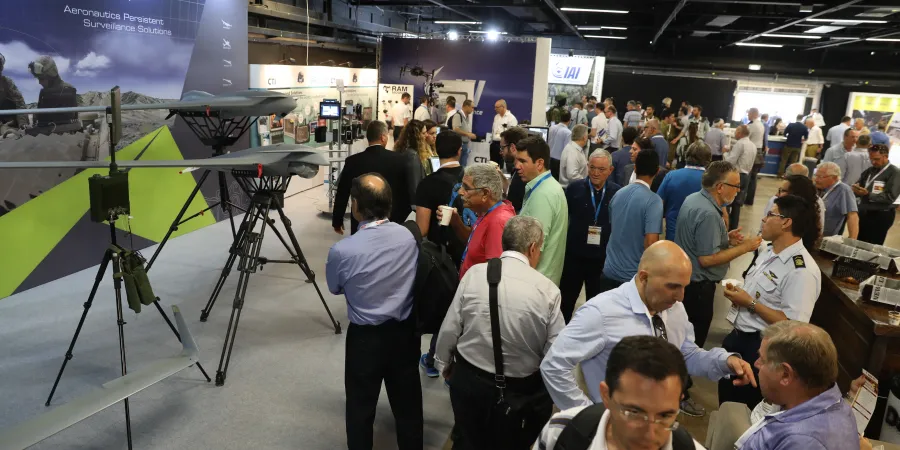Over 1000 People Attended the Fire, Maneuvering & Intelligence Conference
From future armored vehicles to clandestine intelligence operations: Israel defense’s annual conference – Fire, Maneuvering, and Intelligence in a Complex Environment – addressed a variety of issues pertaining to modern warfare. More than 1,000 people took part in the two-day event, which was held at the Tel Aviv Convention Center. Special Coverage
IsraelDefense
| 17/05/2018
The rapidly-changing strategic environment and the complex reality of the battlefield pose many challenges, but also bring opportunities for those involved in Israel’s national security. This year, Israel Defense’s annual conference addressed broad aspects of the complex and changing environment. The conference was held in cooperation with the Israeli Artillery Association and the Intelligence Heritage & Commemoration Center (IICC).
The first day of the conference was dedicated to battlefield challenges regarding fire employment and maneuvering forces. One of the key speakers was Maj. Gen. (res.) Yoav Galant, Minister of Housing and Construction and member of Israel’s Security Cabinet, who made a clear threat to Hamas in the wake of the riots along the Gaza border fence.
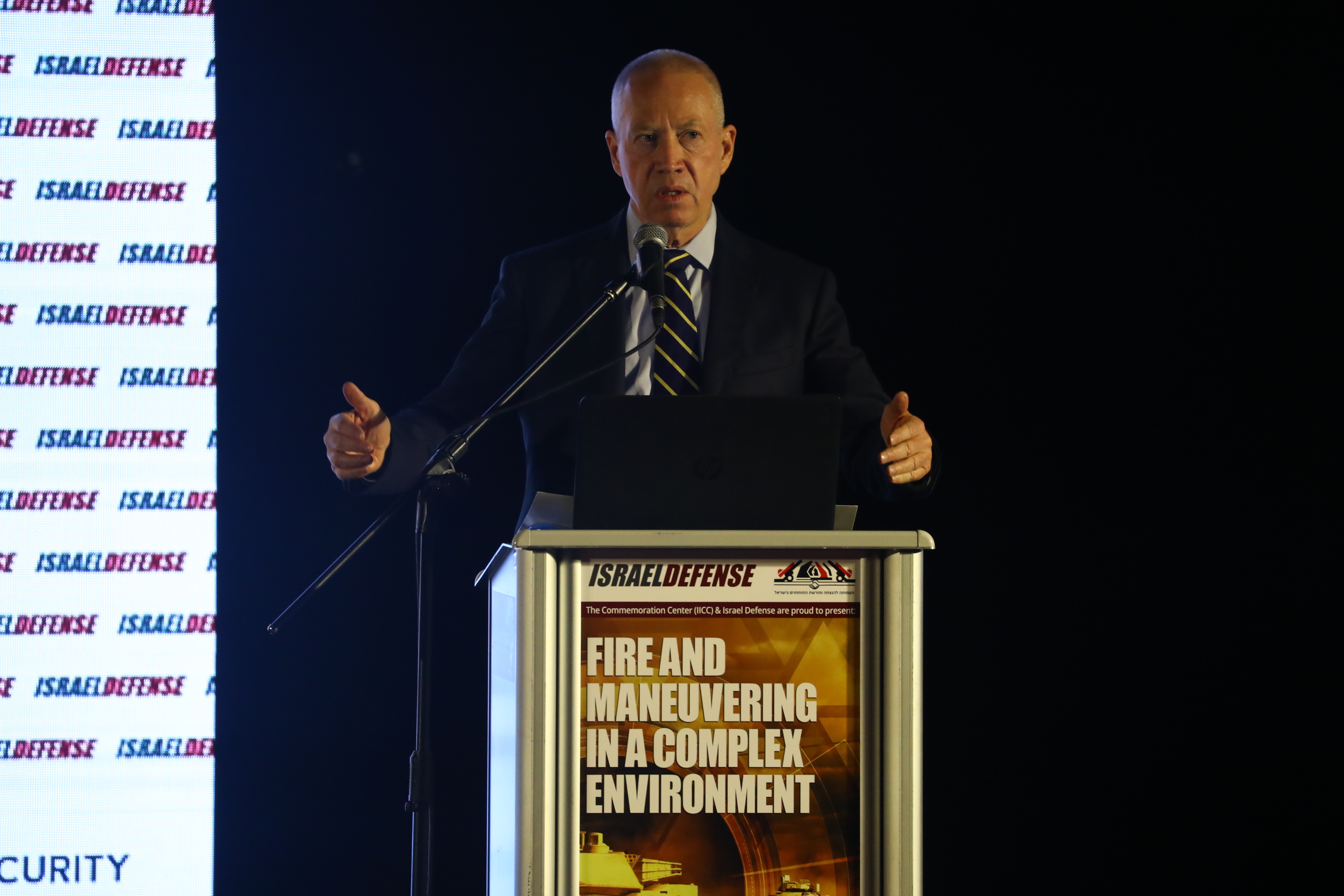
Galant was followed by Maj. Gen. (res.) Tal Russo, former Head of the Operations Branch, GOC Southern Command and Commander of the Depth Command. According to Russo, "The current war is taking place in a state of relative chaos, and we should take advantage of the chaos that exists on the battlefield.” He asserted that “the moves Israel is making are moves in the right direction, with the emphasis on connectivity. That is the primary challenge. To connect everyone together so as to improve the (over-all) effectiveness. Owing to the expansive spaces where we have to conduct our operations. Maneuvering in the enemy's depth, maneuvering into the enemy's depth, extensive fire support, high strike yields, precision-guided munitions (including prevention of collateral damage), and connecting all of those elements together – these are the challenges.
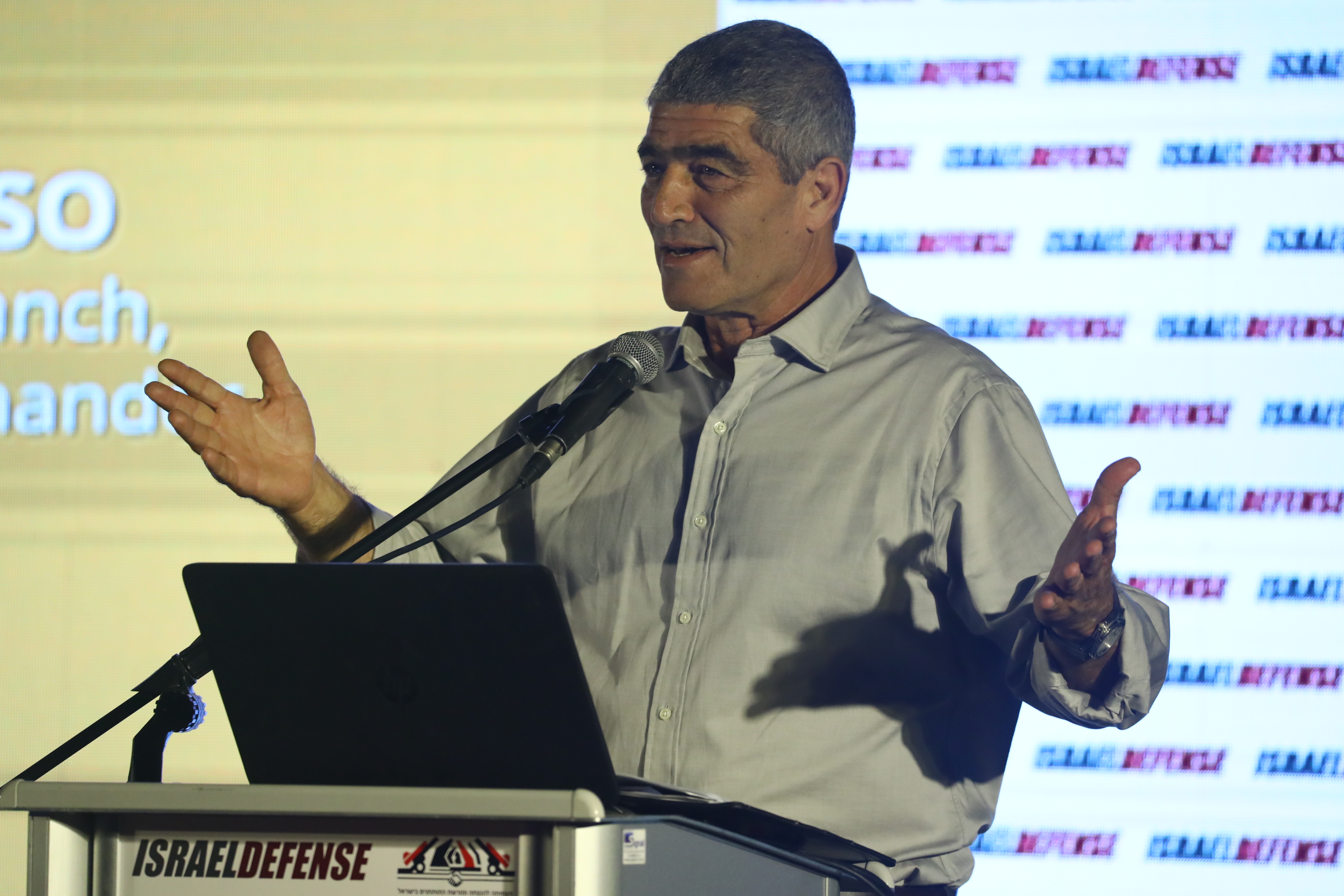
Maj. Gen. Kobi Barak, Commander of the IDF Ground Arm, described the future ground maneuver as an element of the future combined-arms land warfare. He also addressed the extensive organizational and operational revisions currently being introduced by the IDF in view of the new character of the enemy.
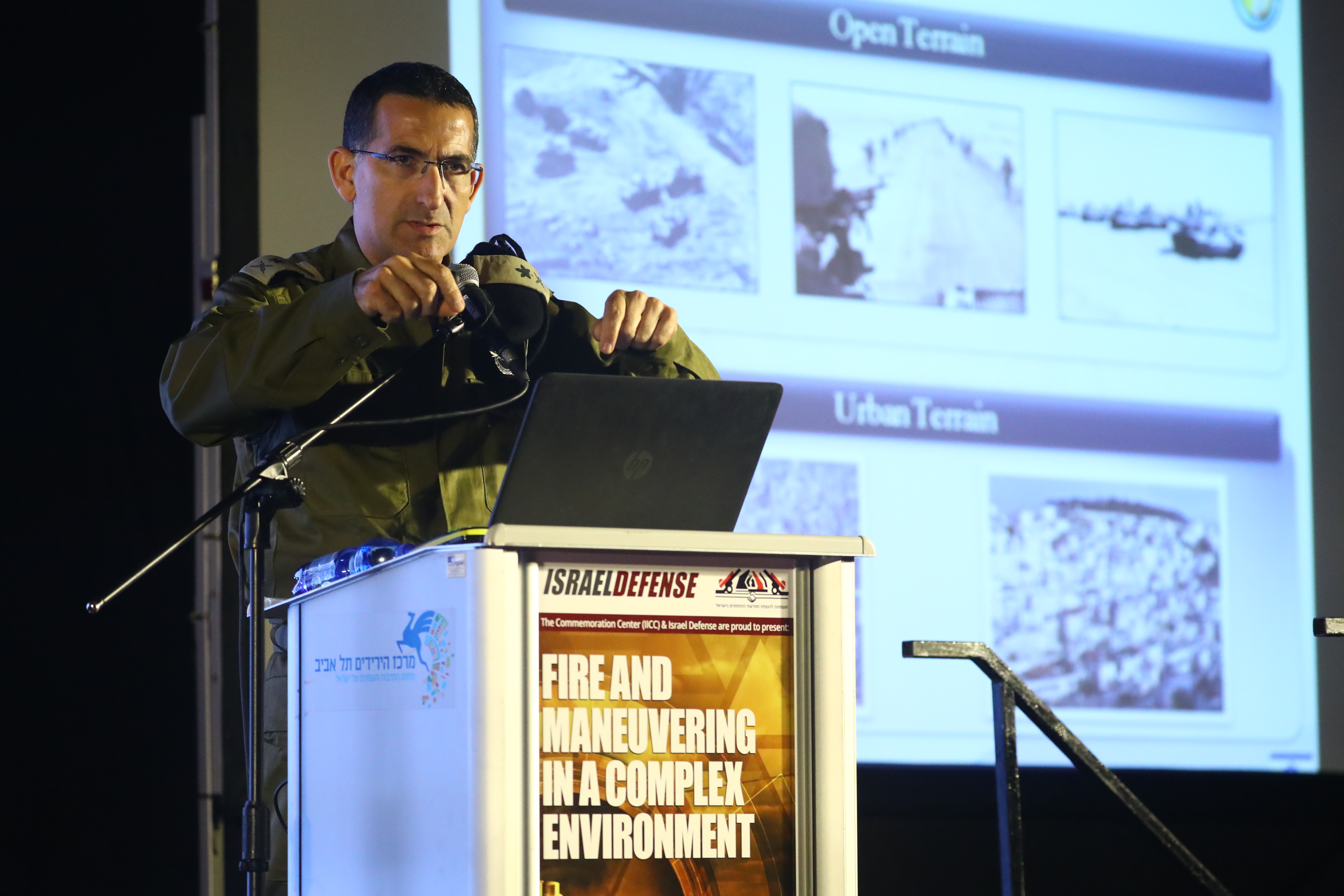
Brig. Gen. (res.) Didi Ben Yoash, Head of Carmel Development Team at IMOD’s Directorate of Defense Research and Development (DDR&D), said “the future armored vehicle will be tracked, not wheeled. It will be a sensor station with versatile firepower, which could be operated by a two-man crew. In the future, a tank company will comprise only two tanks,” he added.
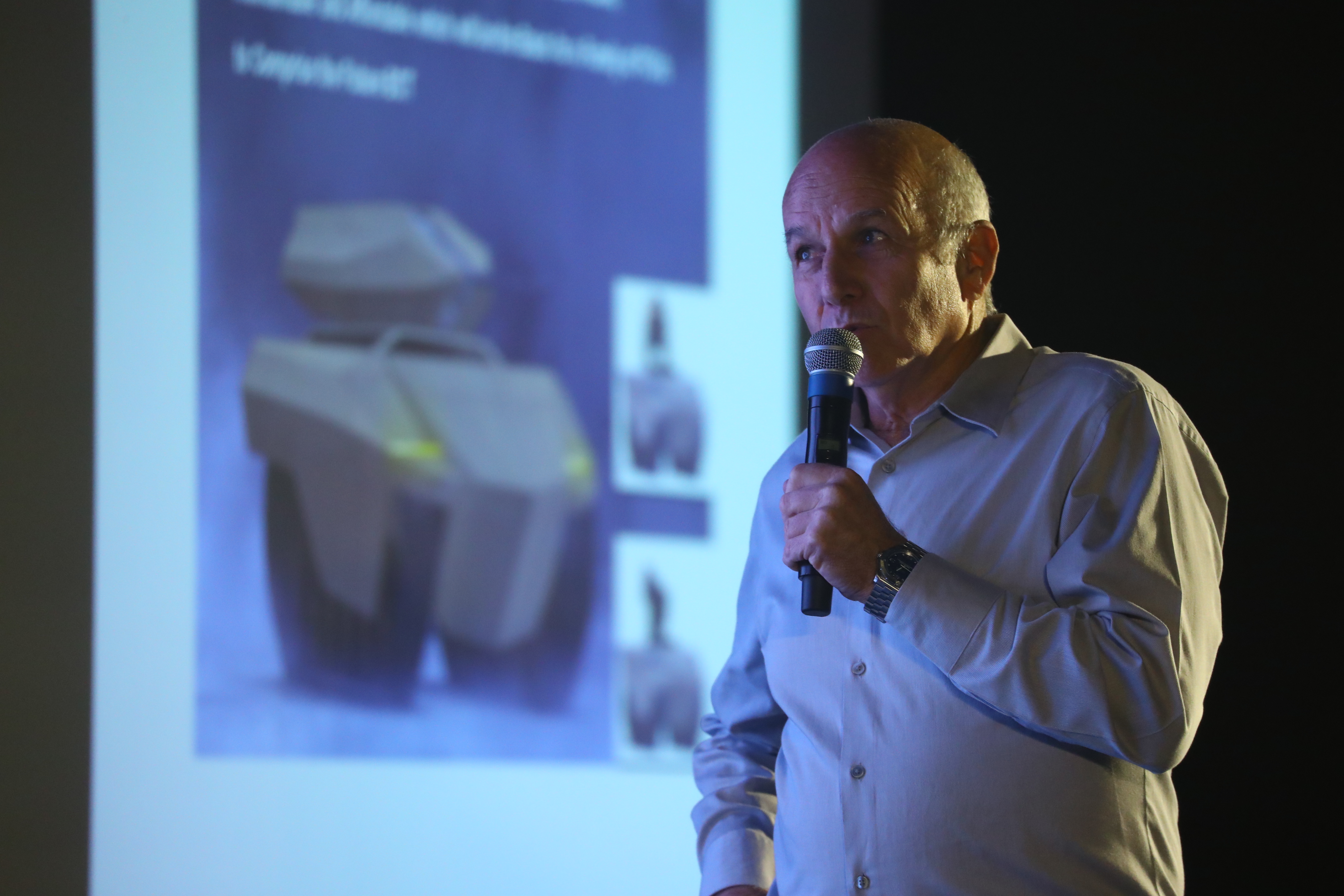
Brig. Gen. Guy Paglin, Head of IMOD’s Armored Vehicles Administration, said that the current Merkava Mk 4 is capable of dealing with a vast range of threats and enemies. According to him, the tank has a more powerful engine, better armor than its predecessors, and better combat capabilities on the network-centric battlefield.
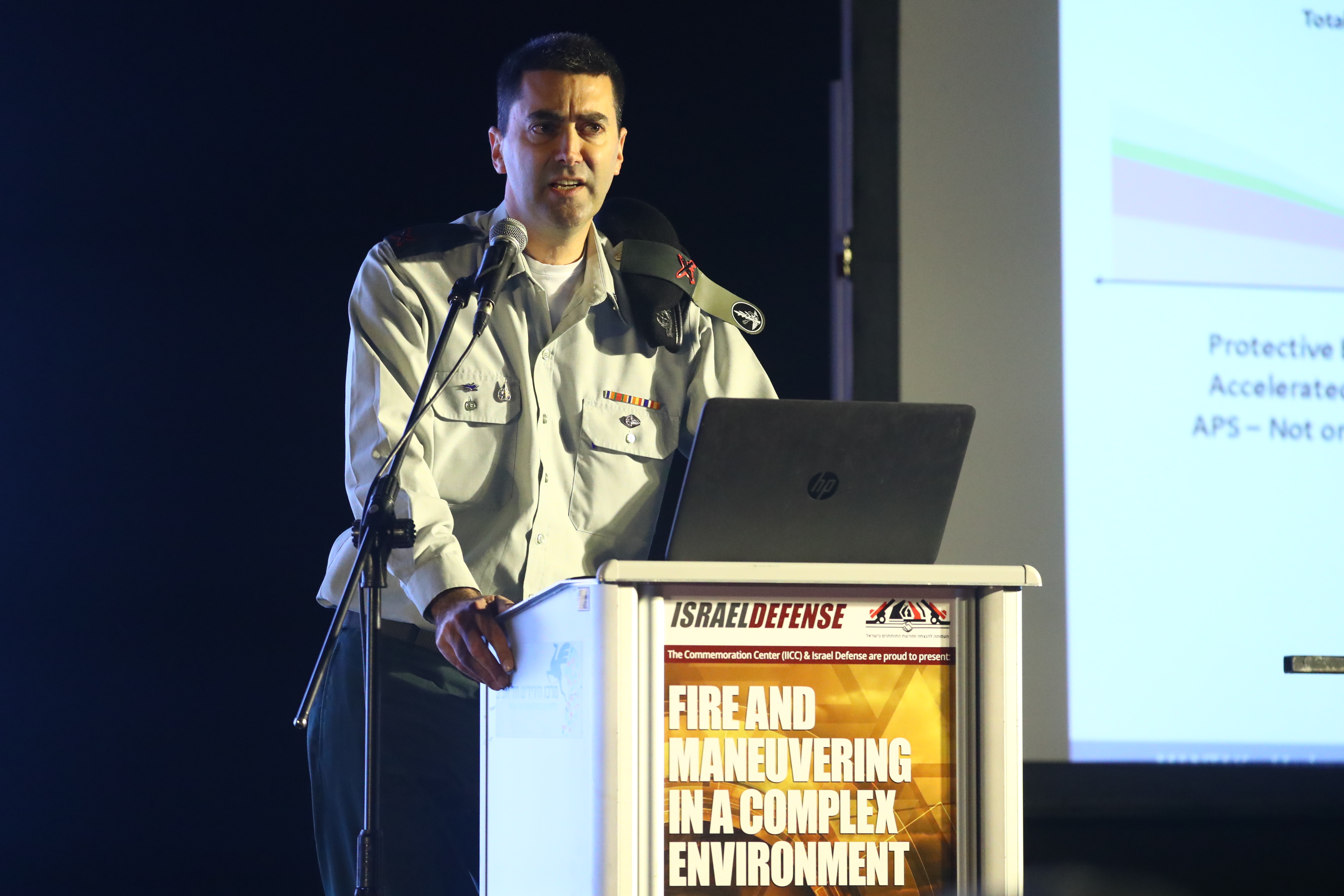
Maj. Gen. (res.) Eyal Eisenberg, formerly the Commander of the IDF Home Front Command, asserted in his address that the Israeli home front is not ready for a future war involving the home front, and that each one of the various home front organizations "is pulling the blanket in its own direction." The enemy in the north has an arsenal of 100,000 rockets and missiles, and the civilian solution for the home front must be a systemic one.
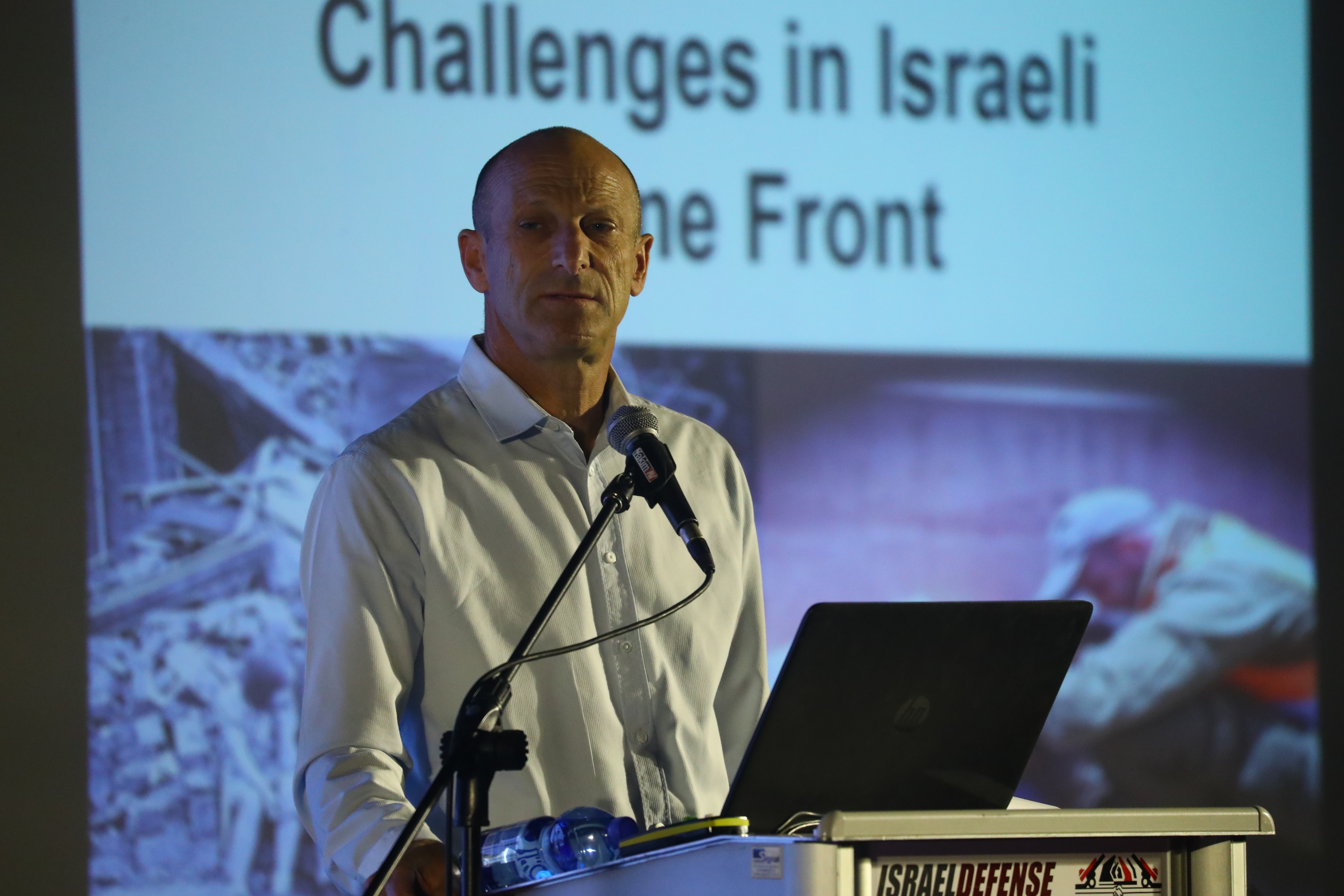
Col. (res.) Boaz Cohen, VP Land & C4I Systems at Elbit Systems, spoke about medium and long-range tactical fire support. "The current challenges are closing the loops promptly, avoiding collateral damage and prompt real-time decision making. We currently possess the abilities required in order to generate targets quickly using various methods. A target may consist of an individual vehicle that should be destroyed or a single launcher. Today, a transition is underway toward automatic and autonomous guns, a turret that fires without a human element in the loop. Today, each artillery unit has the firepower that a whole artillery battery had in the past."
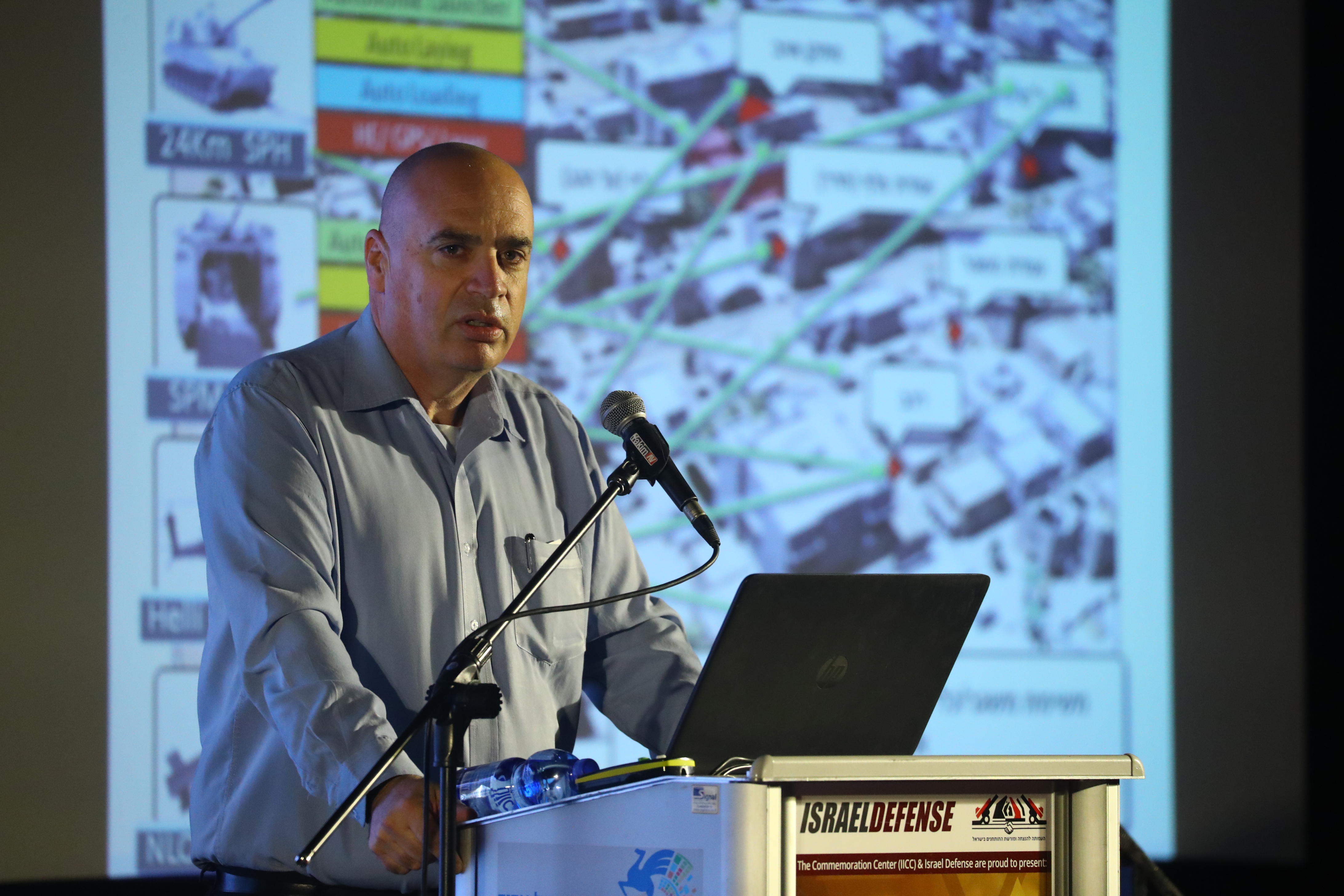
Four former IDF generals took part in a special panel in the first day of the conference and discussed Israel's defense situation and the challenges of the modern battlefield. The generals included Maj. Gen. (res.) Eitan Ben-Eliyahu, Former Commander of the Israeli Air Force; Maj. Gen. (res.) Avi Mizrahi, Former Commander of the GOC Central Command, Maj. Gen. (Res.) Guy Tzur, Former Commander of the IDF Ground Arm; and Maj. Gen. (res.) Ram Rothberg, Former Commander of the Israeli Navy.
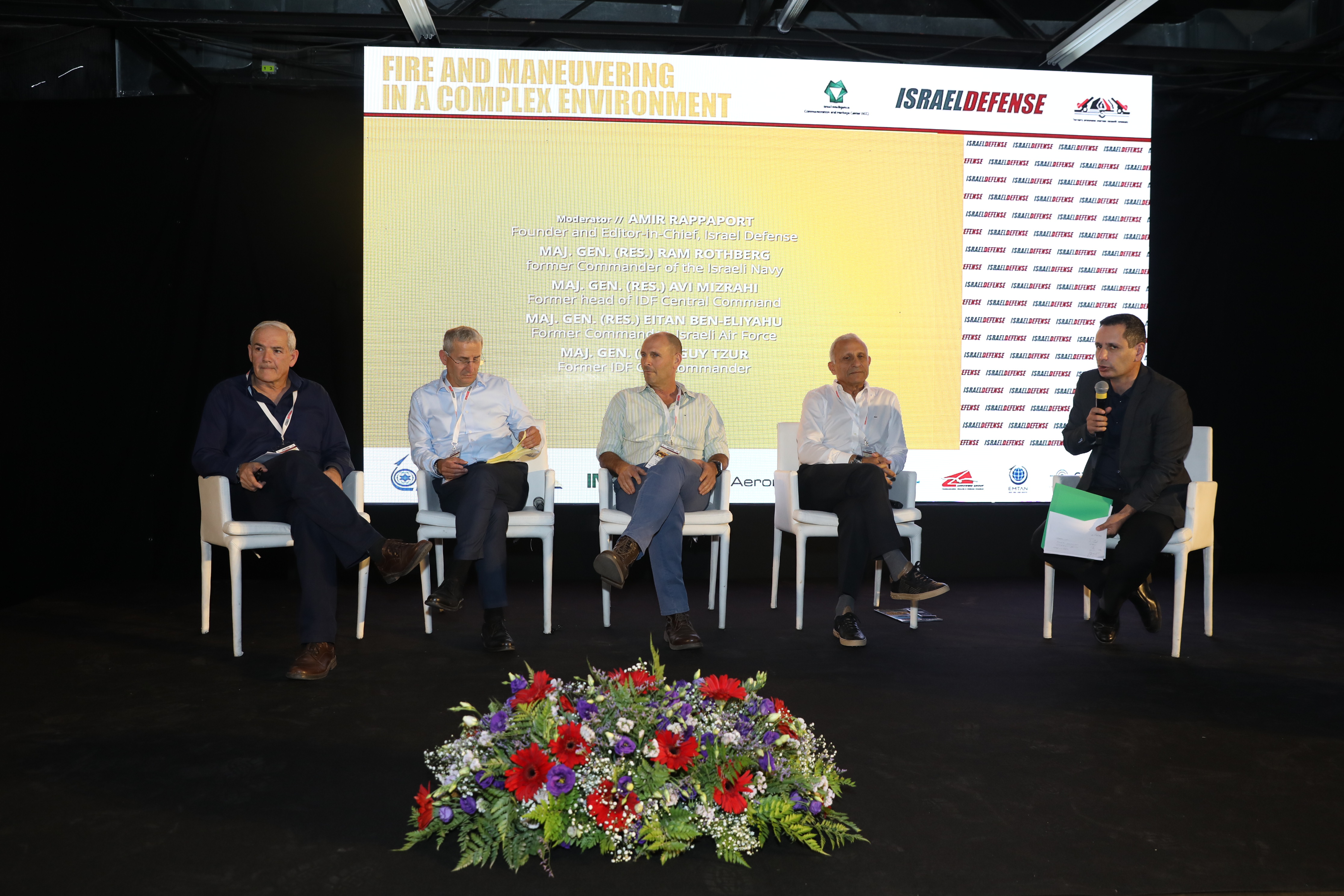
A unique exhibition of innovative weapon systems coincided with the conference.
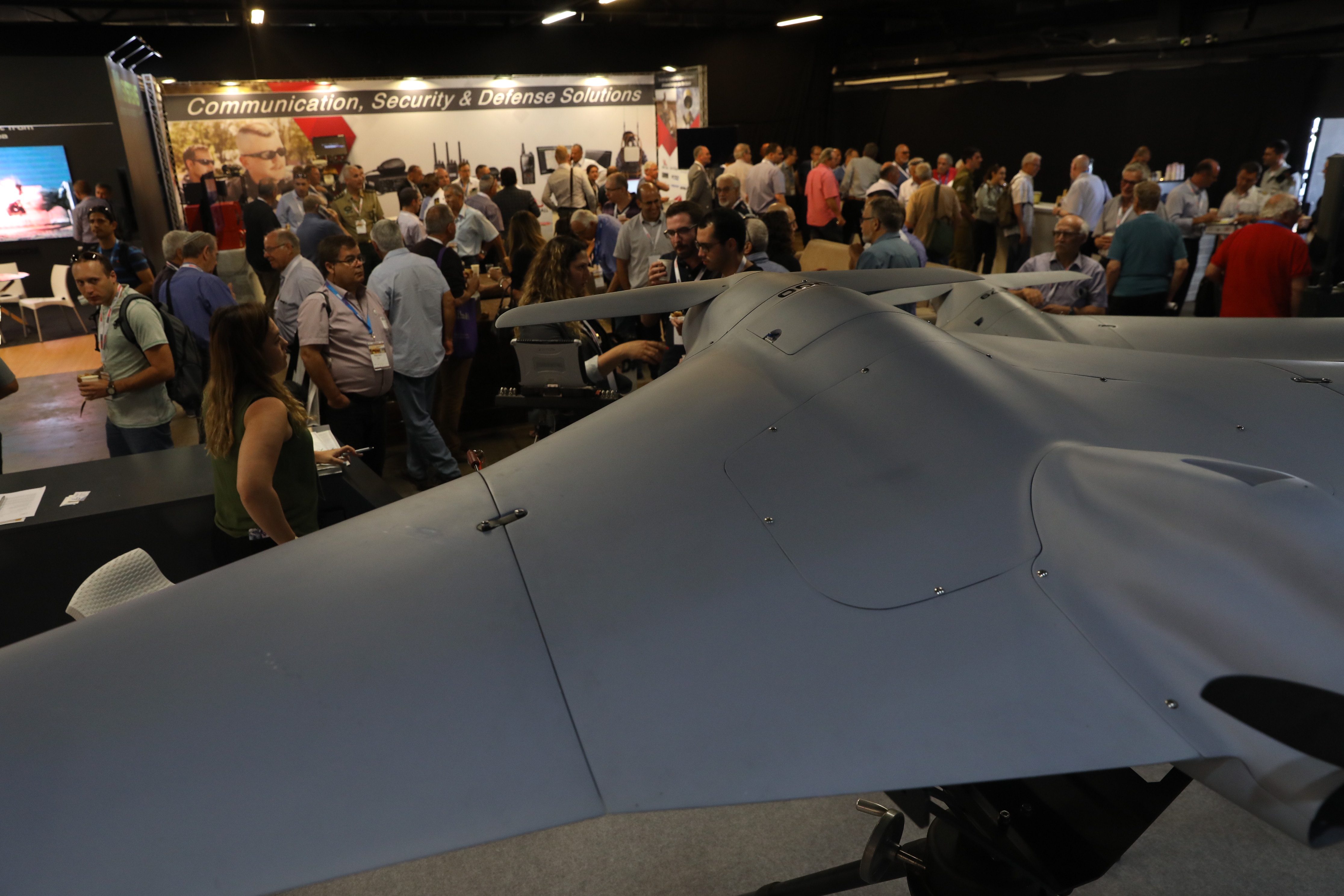
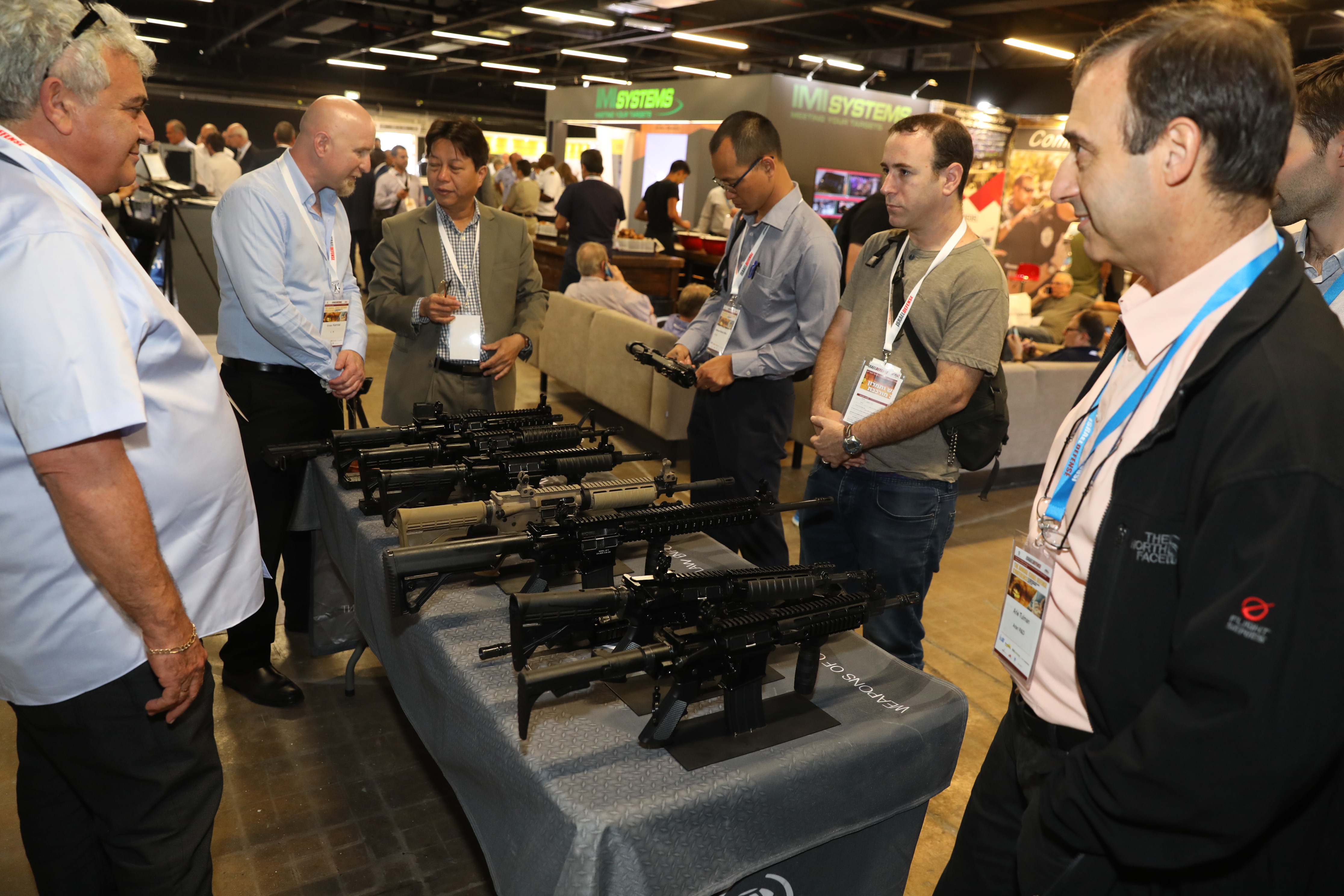
The second day of the conference focused on intelligence and strategy issues. First to address the opening plenary was former Israeli Minister of Defense and IDF Chief of Staff, Moshe (Bogie) Ya’alon. “We are in a good state regarding our operational and technological power, and we must continue to build this force in order to create a practical advantage over the enemy,” he stated.
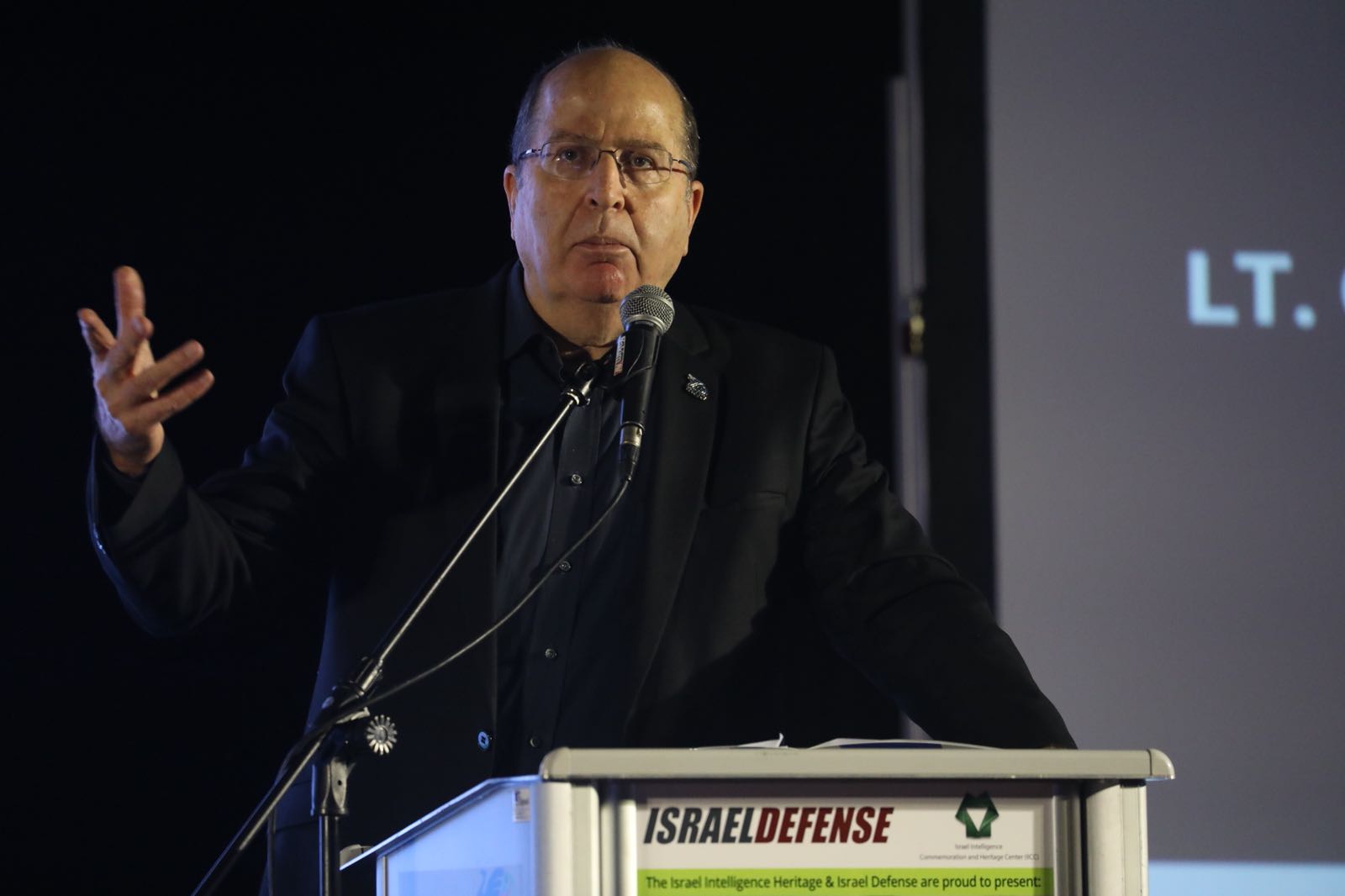
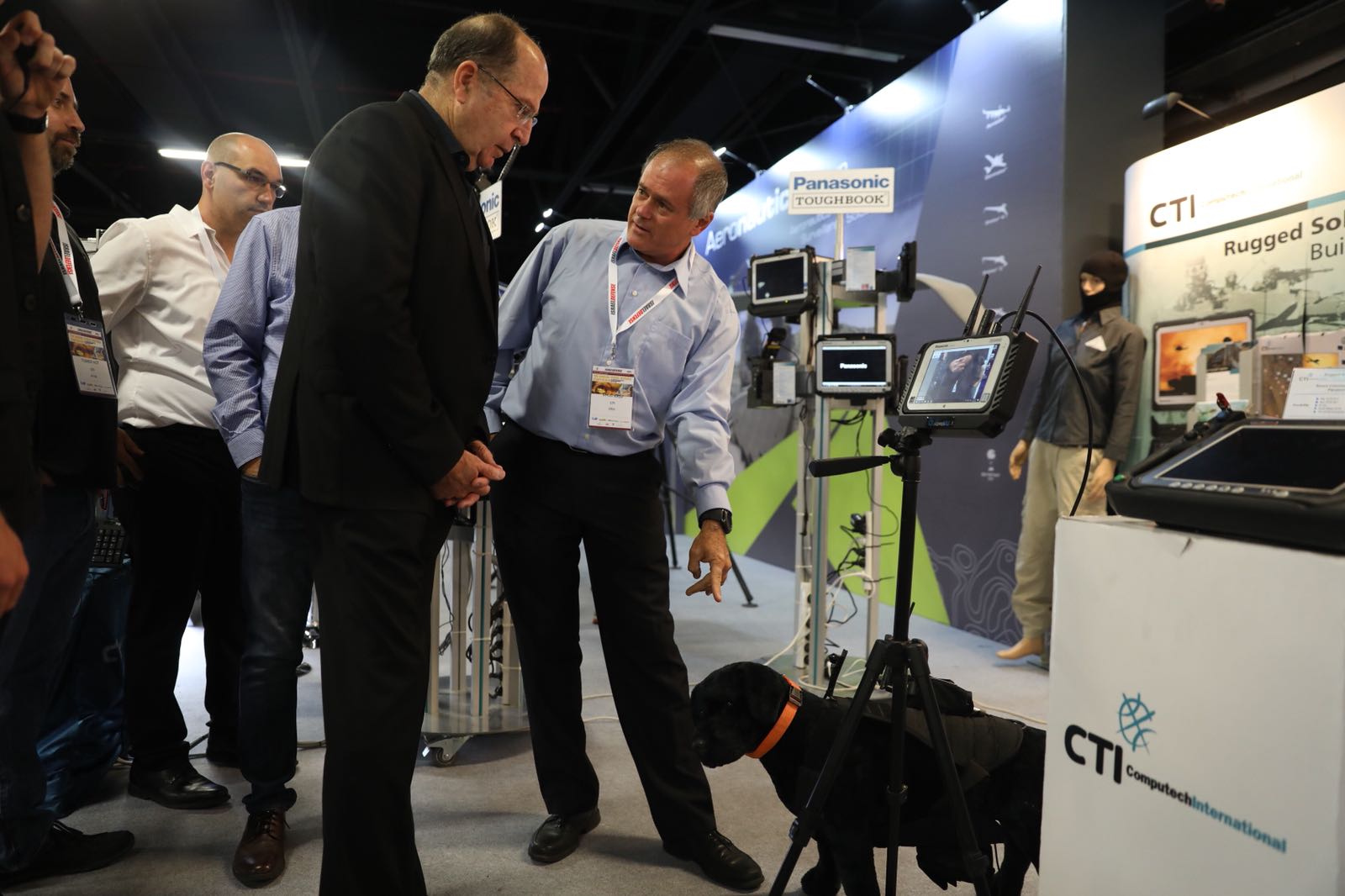
Israel’s Intelligence Minister Israel Katz addressed the Iranian entrenchment efforts in Syria in his speech and said that “intelligence allows us to conduct surgical strikes.” Regarding the diplomatic crisis with Turkey, he said: “Erdogan speaks like a true enemy, but let me remind you that he once received information from Israel that helped prevent an ISIS attack.”
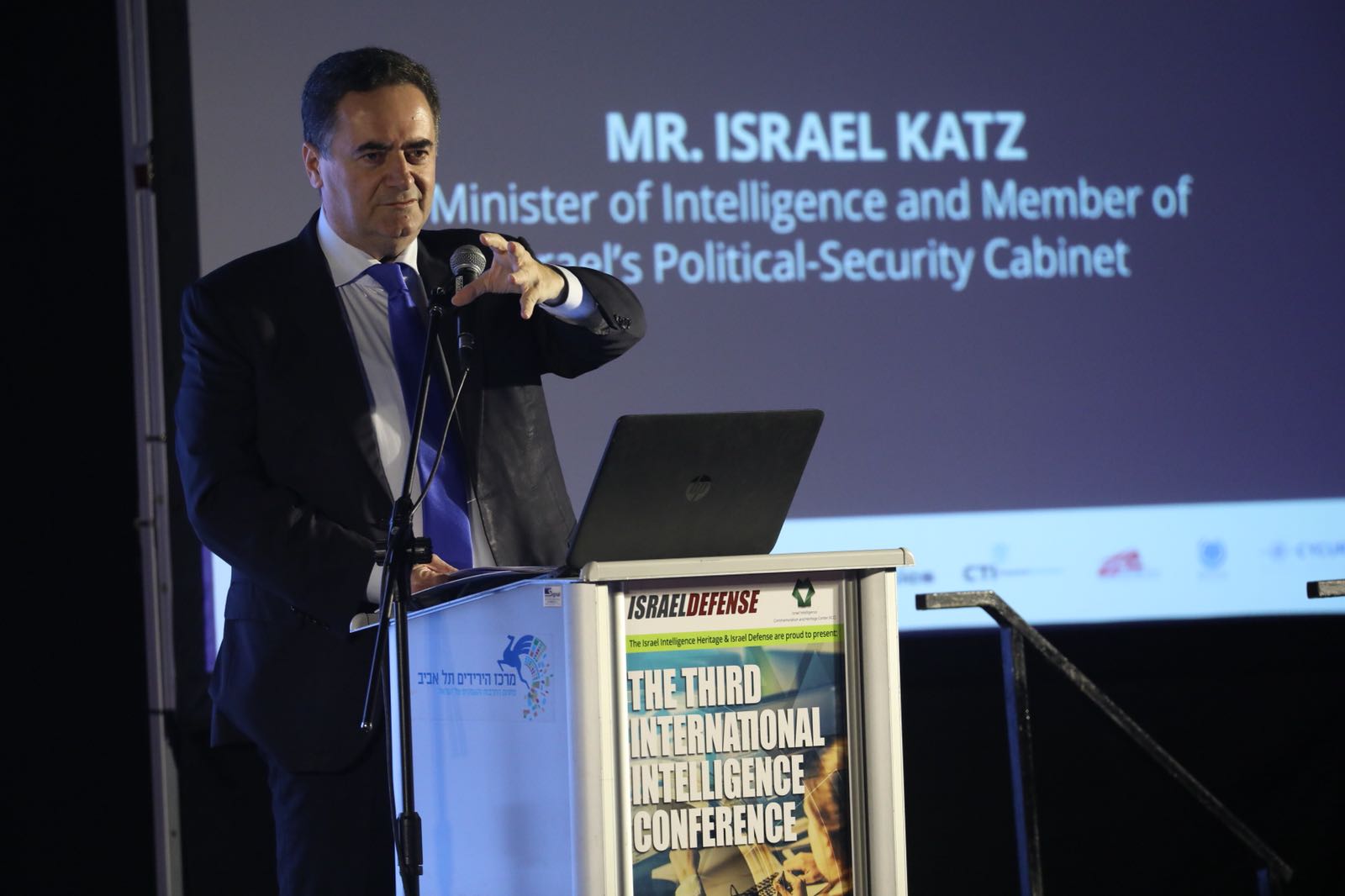
During a special panel at the conference, Maj. Gen. (res.) Aharon Zeevi-Farkash, formerly the Head of the IDF Intelligence Directorate, said “The IDF Intelligence Directorate faces three billion bits of information per day. Within minutes, you have to derive insights from that mass. It is difficult to describe the significance of this Big Data revolution. A massive data storing and processing capability is required.” Haim Tomer, formerly a department head in the Mossad, said in the panel that “Dagan and Pardo [former Mossad chiefs] objected, initially, to devoting resources to collection efforts associated with the Syrian reactor.” Zohar Palti, Had of the Political-Security Branch at IMOD, also addressed Israel’s intelligence challenges.
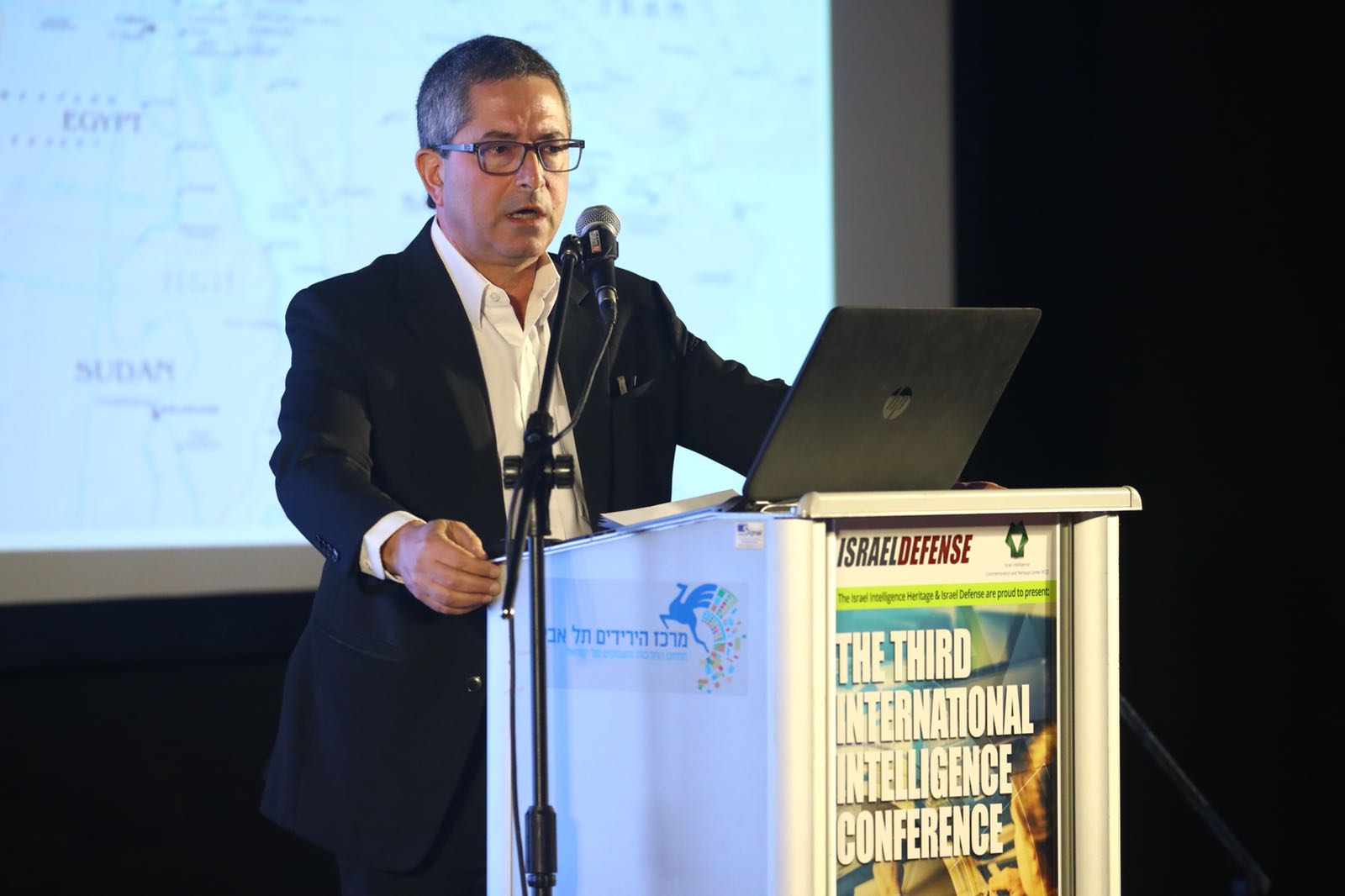
Sima Shine, a senior research fellow at the Institute for National Strategic Studies (INSS) and a former senior officer of the IDF Intelligence Directorate and the Mossad, addressed the Iranian nuclear issue and estimated that “within a few months, the Iranians will announce their withdrawal from the agreement and renewal of their nuclear program.”
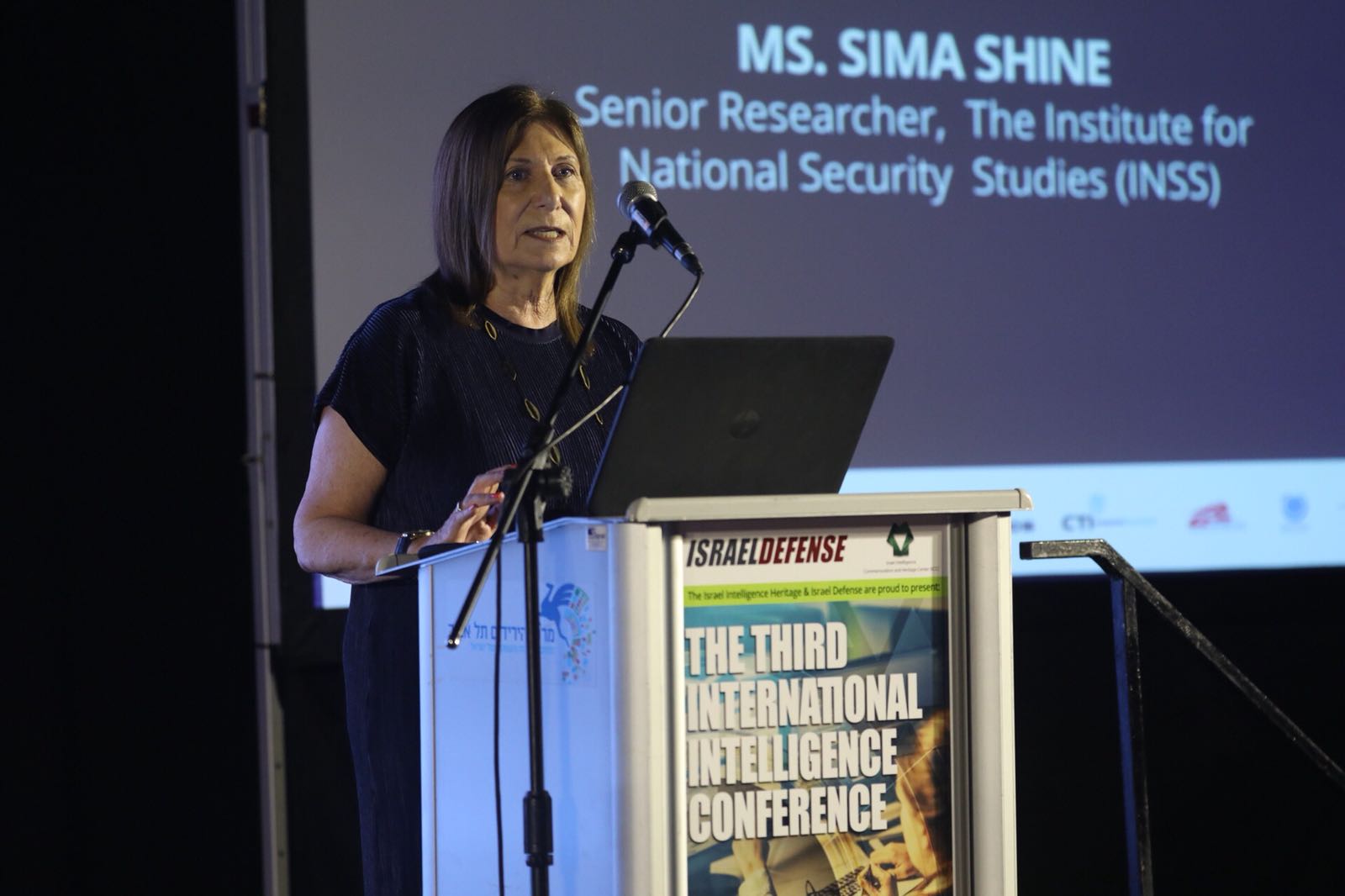
A festive cocktail reception was held as part of the conference and welcomed honored guests and foreign delegates. During the reception, a special regional review was given by Maj. Gen. (res.) Amos Gilad, Director, former head of IMOD’s Political-Security Branch.
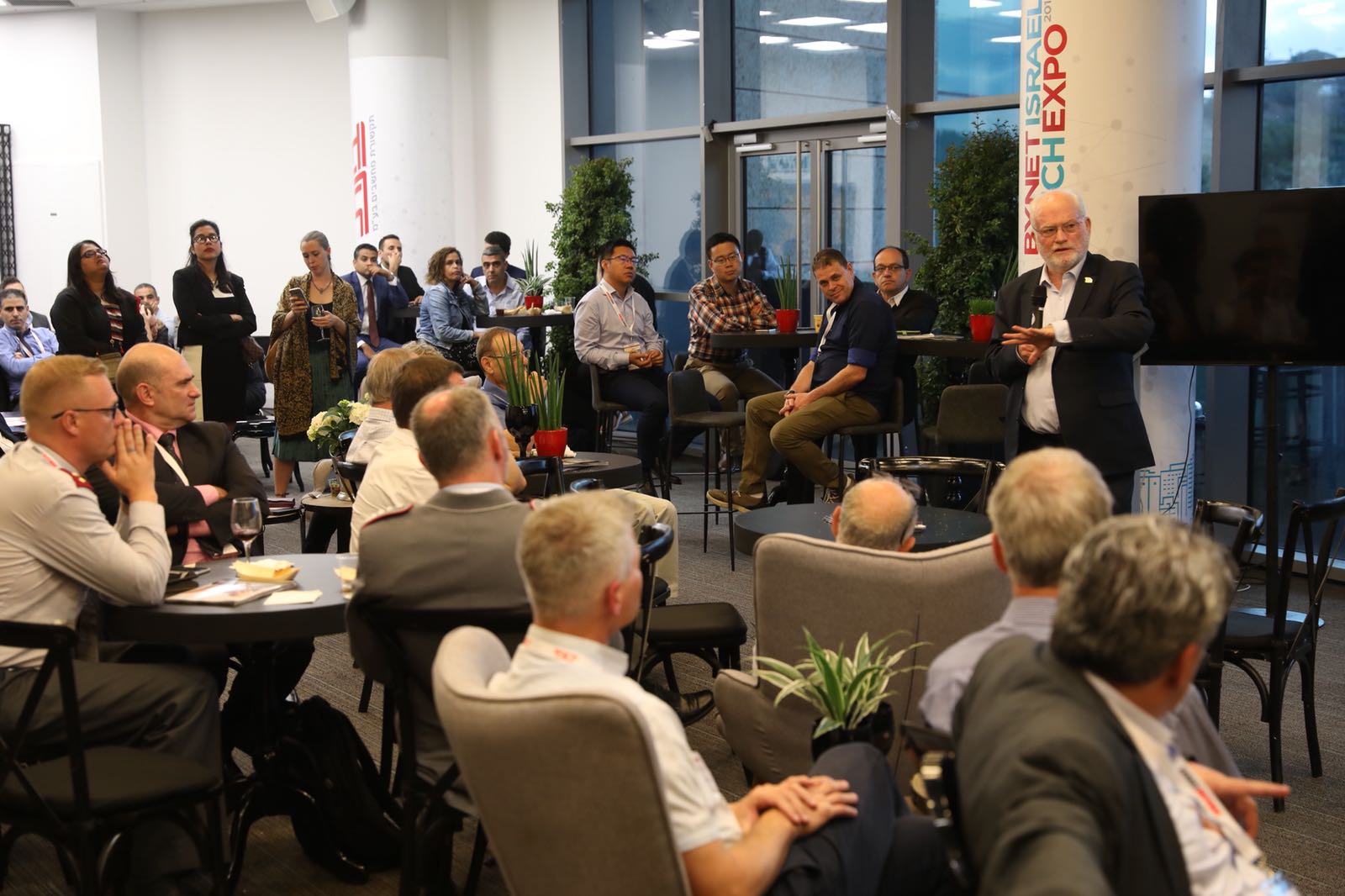
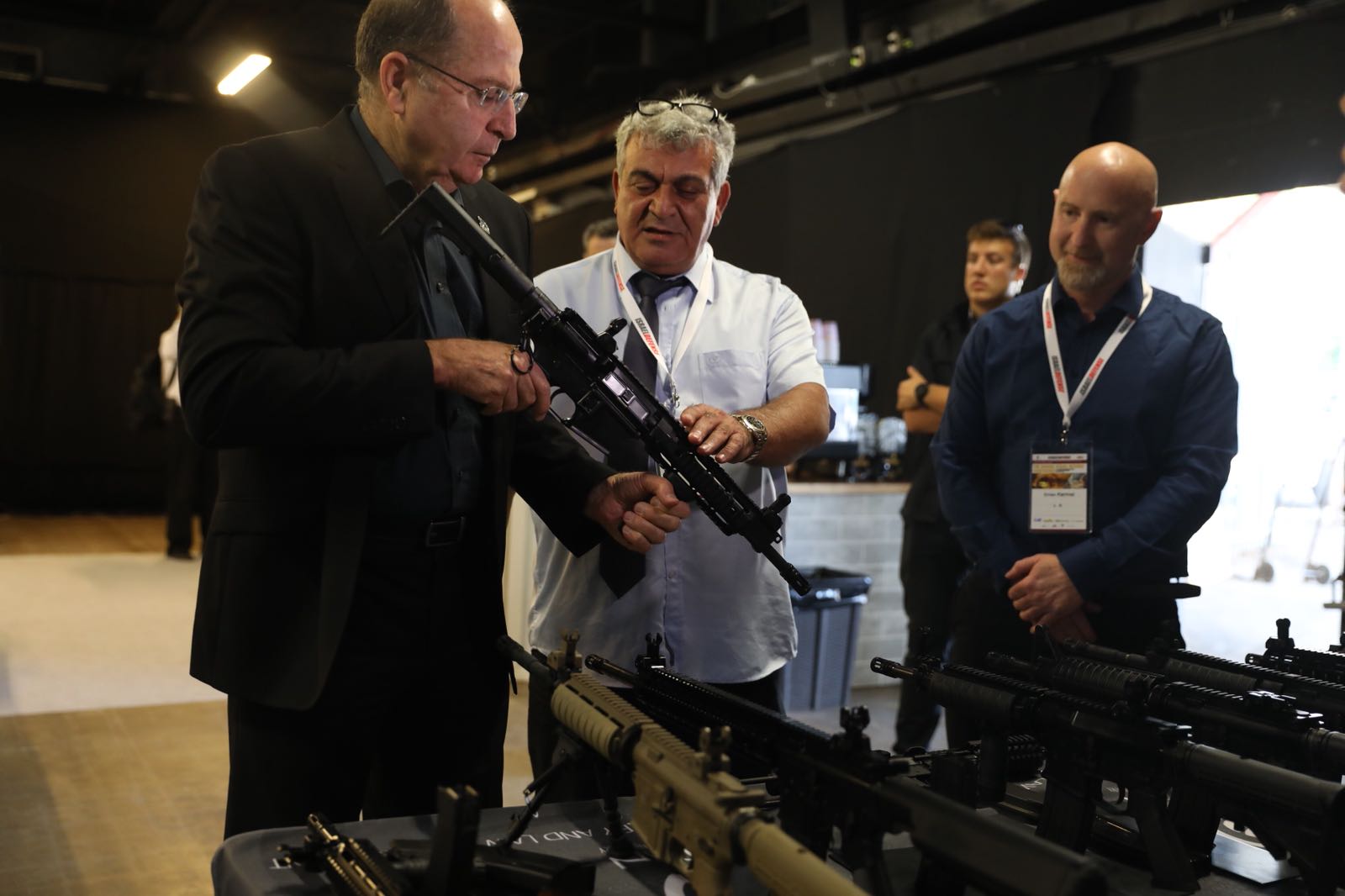
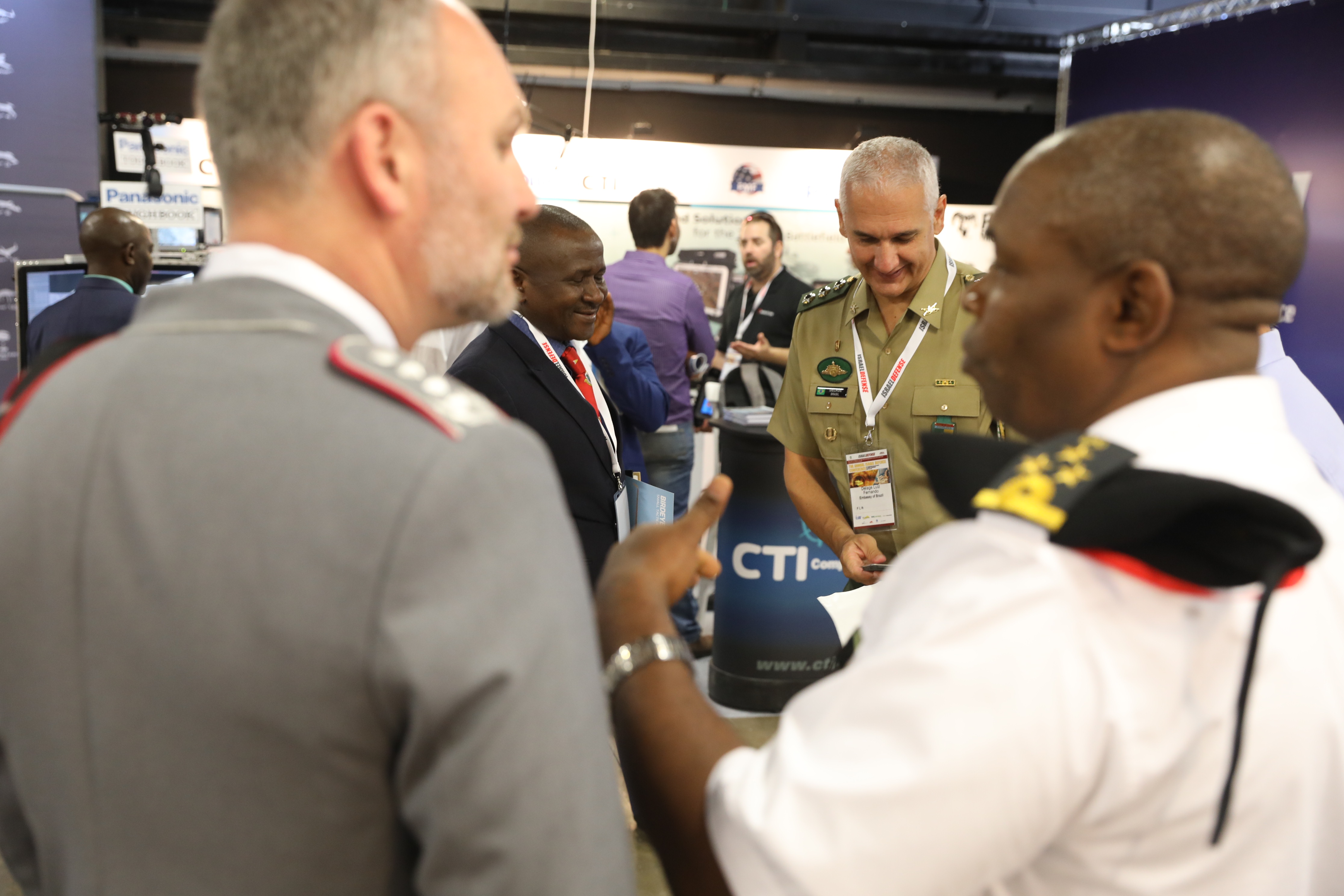
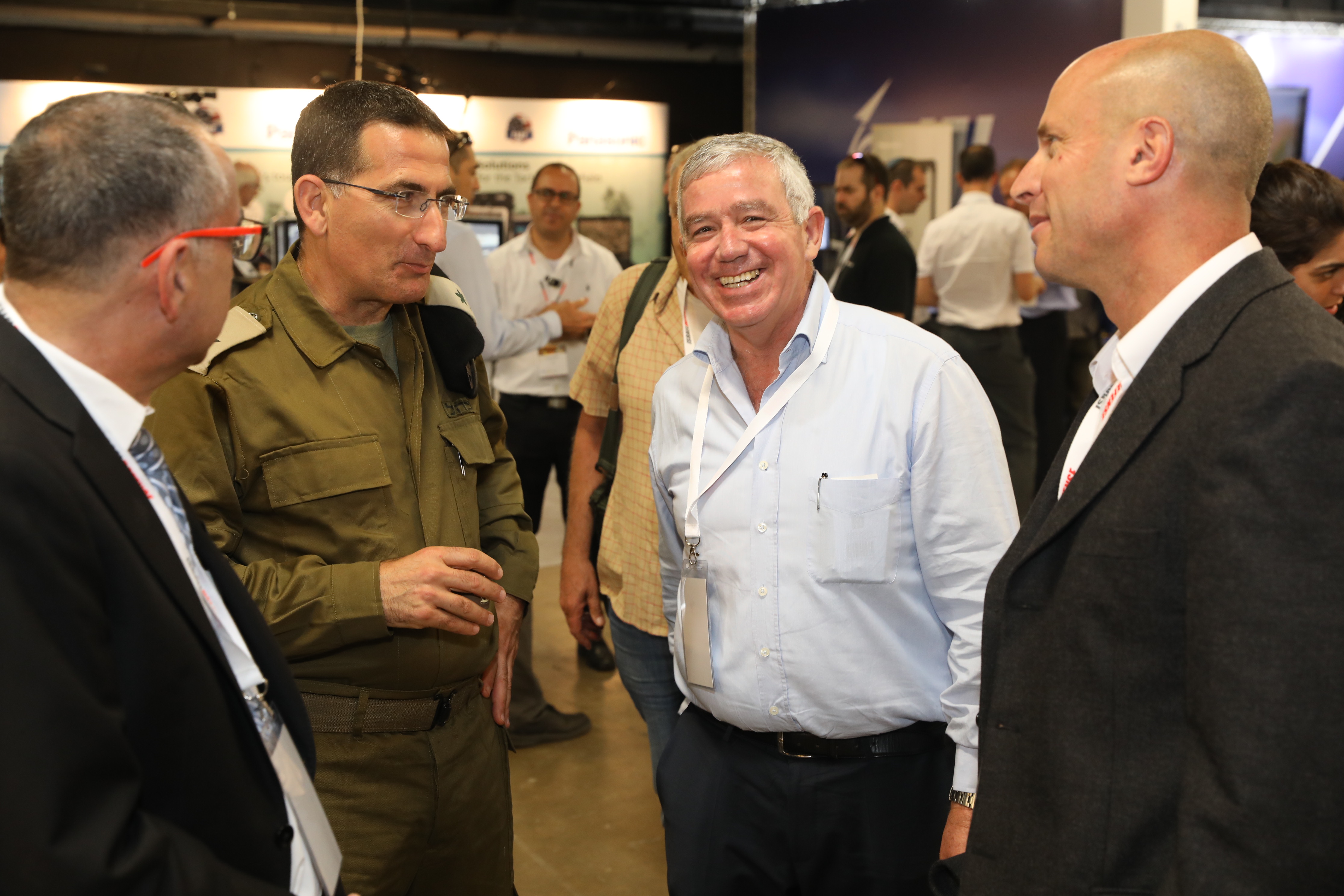
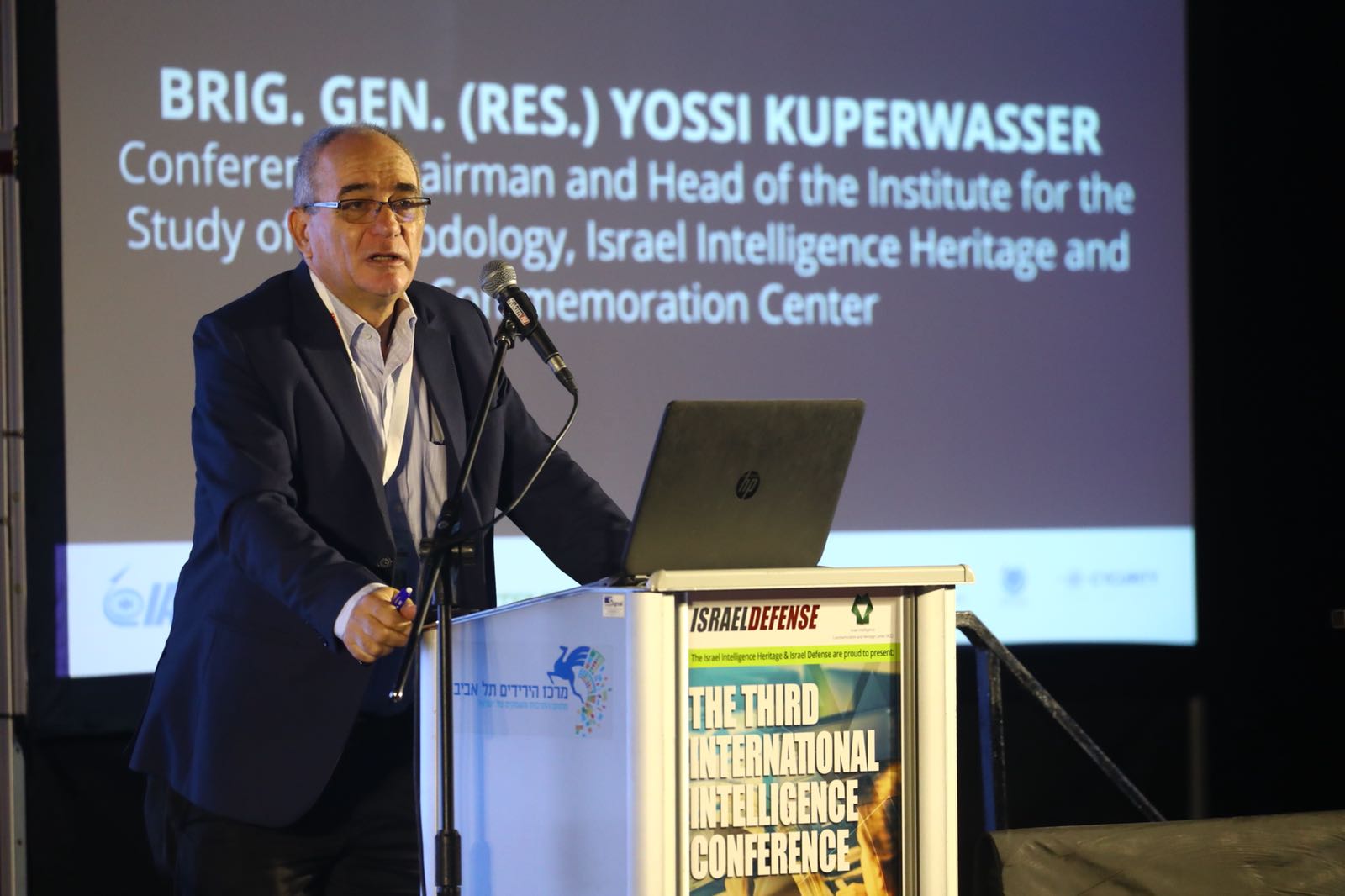
Photography: Gilad Kavalerchik
From future armored vehicles to clandestine intelligence operations: Israel defense’s annual conference – Fire, Maneuvering, and Intelligence in a Complex Environment – addressed a variety of issues pertaining to modern warfare. More than 1,000 people took part in the two-day event, which was held at the Tel Aviv Convention Center. Special Coverage
The rapidly-changing strategic environment and the complex reality of the battlefield pose many challenges, but also bring opportunities for those involved in Israel’s national security. This year, Israel Defense’s annual conference addressed broad aspects of the complex and changing environment. The conference was held in cooperation with the Israeli Artillery Association and the Intelligence Heritage & Commemoration Center (IICC).
The first day of the conference was dedicated to battlefield challenges regarding fire employment and maneuvering forces. One of the key speakers was Maj. Gen. (res.) Yoav Galant, Minister of Housing and Construction and member of Israel’s Security Cabinet, who made a clear threat to Hamas in the wake of the riots along the Gaza border fence.
Galant was followed by Maj. Gen. (res.) Tal Russo, former Head of the Operations Branch, GOC Southern Command and Commander of the Depth Command. According to Russo, "The current war is taking place in a state of relative chaos, and we should take advantage of the chaos that exists on the battlefield.” He asserted that “the moves Israel is making are moves in the right direction, with the emphasis on connectivity. That is the primary challenge. To connect everyone together so as to improve the (over-all) effectiveness. Owing to the expansive spaces where we have to conduct our operations. Maneuvering in the enemy's depth, maneuvering into the enemy's depth, extensive fire support, high strike yields, precision-guided munitions (including prevention of collateral damage), and connecting all of those elements together – these are the challenges.
Maj. Gen. Kobi Barak, Commander of the IDF Ground Arm, described the future ground maneuver as an element of the future combined-arms land warfare. He also addressed the extensive organizational and operational revisions currently being introduced by the IDF in view of the new character of the enemy.
Brig. Gen. (res.) Didi Ben Yoash, Head of Carmel Development Team at IMOD’s Directorate of Defense Research and Development (DDR&D), said “the future armored vehicle will be tracked, not wheeled. It will be a sensor station with versatile firepower, which could be operated by a two-man crew. In the future, a tank company will comprise only two tanks,” he added.
Brig. Gen. Guy Paglin, Head of IMOD’s Armored Vehicles Administration, said that the current Merkava Mk 4 is capable of dealing with a vast range of threats and enemies. According to him, the tank has a more powerful engine, better armor than its predecessors, and better combat capabilities on the network-centric battlefield.
Maj. Gen. (res.) Eyal Eisenberg, formerly the Commander of the IDF Home Front Command, asserted in his address that the Israeli home front is not ready for a future war involving the home front, and that each one of the various home front organizations "is pulling the blanket in its own direction." The enemy in the north has an arsenal of 100,000 rockets and missiles, and the civilian solution for the home front must be a systemic one.
Col. (res.) Boaz Cohen, VP Land & C4I Systems at Elbit Systems, spoke about medium and long-range tactical fire support. "The current challenges are closing the loops promptly, avoiding collateral damage and prompt real-time decision making. We currently possess the abilities required in order to generate targets quickly using various methods. A target may consist of an individual vehicle that should be destroyed or a single launcher. Today, a transition is underway toward automatic and autonomous guns, a turret that fires without a human element in the loop. Today, each artillery unit has the firepower that a whole artillery battery had in the past."
Four former IDF generals took part in a special panel in the first day of the conference and discussed Israel's defense situation and the challenges of the modern battlefield. The generals included Maj. Gen. (res.) Eitan Ben-Eliyahu, Former Commander of the Israeli Air Force; Maj. Gen. (res.) Avi Mizrahi, Former Commander of the GOC Central Command, Maj. Gen. (Res.) Guy Tzur, Former Commander of the IDF Ground Arm; and Maj. Gen. (res.) Ram Rothberg, Former Commander of the Israeli Navy.
A unique exhibition of innovative weapon systems coincided with the conference.
The second day of the conference focused on intelligence and strategy issues. First to address the opening plenary was former Israeli Minister of Defense and IDF Chief of Staff, Moshe (Bogie) Ya’alon. “We are in a good state regarding our operational and technological power, and we must continue to build this force in order to create a practical advantage over the enemy,” he stated.


Israel’s Intelligence Minister Israel Katz addressed the Iranian entrenchment efforts in Syria in his speech and said that “intelligence allows us to conduct surgical strikes.” Regarding the diplomatic crisis with Turkey, he said: “Erdogan speaks like a true enemy, but let me remind you that he once received information from Israel that helped prevent an ISIS attack.”

During a special panel at the conference, Maj. Gen. (res.) Aharon Zeevi-Farkash, formerly the Head of the IDF Intelligence Directorate, said “The IDF Intelligence Directorate faces three billion bits of information per day. Within minutes, you have to derive insights from that mass. It is difficult to describe the significance of this Big Data revolution. A massive data storing and processing capability is required.” Haim Tomer, formerly a department head in the Mossad, said in the panel that “Dagan and Pardo [former Mossad chiefs] objected, initially, to devoting resources to collection efforts associated with the Syrian reactor.” Zohar Palti, Had of the Political-Security Branch at IMOD, also addressed Israel’s intelligence challenges.

Sima Shine, a senior research fellow at the Institute for National Strategic Studies (INSS) and a former senior officer of the IDF Intelligence Directorate and the Mossad, addressed the Iranian nuclear issue and estimated that “within a few months, the Iranians will announce their withdrawal from the agreement and renewal of their nuclear program.”

A festive cocktail reception was held as part of the conference and welcomed honored guests and foreign delegates. During the reception, a special regional review was given by Maj. Gen. (res.) Amos Gilad, Director, former head of IMOD’s Political-Security Branch.



Photography: Gilad Kavalerchik

